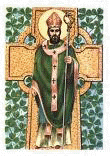I’ve been reading The Great Omission by Dallas Willard, and some thoughts have been stirred. I became a Christian at an early age, so you could say that I grew up Christian. In the circles I was a part of the definition of “Christian” was someone who had prayed a prayer to ask Jesus into their heart and who assented to a particular set of beliefs. Those who had not said “the prayer” or didn’t believe as we did were seen as not Christian, or at the most, not a very good one. We were taught that America was “a Christian nation,” and that some folks wanted to deny our Christian heritage and take it away from us. Our job as Christians was to live a good moral life, and stay away from those who didn’t. At the same time we were to be a “good witness” to those we were staying away from. We were to tell them that they were sinners and that if they said the prayer, they too could become Christians and live good moral lives and then go to heaven when they die.
As I grew into young adulthood, I slowly began to realize that others beside fundamental Baptists could be Christians as well. They still had to assent to a set of beliefs, but my definition of those beliefs narrowed a bit. I still saw salvation as a moment in time and the Gospel as only a way to get into heaven without it necessarily affecting your life very much. The interesting thing about this is that while I still held to many of the ideas of my childhood teaching regarding God and the Bible, many areas of my life would give some people reason to doubt my own Christianity. I had succumbed to the idea that having a home in heaven when I died was the only thing that mattered, so how I lived here in this life wasn’t really important. Of course, I tried to make sure that certain people didn’t find out certain things. After all, I had a reputation as a Christian to protect.
The term “Christian” has come to mean something far different from what it originally meant. Depending on who you talk to, “Christian” can mean a politically conservative American, or someone who leans to the left. It can mean someone who is not Jewish, Muslim, Buddhist, Hindu, or atheist. Many hear the term and think of a person who is mean spirited, narrow minded, and arrogant. Many who call themselves Christian are simply part of the culture of Christendom that has grown in the West over the past few hundred years. So, to separate from that mindset, I have been calling myself a follower of Jesus.
While I still like the term “follower of Jesus,” especially as opposed to “Christian,” I’m beginning to think that even that is not descriptive enough of what I am, or at least what I am trying to be. Dallas Willard writes about how the concept of discipleship has been ignored by the Church, or at best relegated to a group of super spiritual folks who want to “go deeper.” Willard makes the point that the Great Commission given by Jesus is a call to make disciples. In first century Palestine a disciple was one who apprenticed himself to a rabbi. The disciple made a commitment to learn from the rabbi and had a goal to relate to God in the same way the rabbi did. It was more than just learning information. It was being with the rabbi and watching him, how he dealt with people and situations. It was becoming like the rabbi, not just learning about the rabbi. A saying from that time was, “Follow the rabbi. Drink in his words, and cover yourself with the dust of his feet.” The idea was to be so close to the rabbi that when people saw the disciple they saw the rabbi.
That is what I want. I want to to learn from Jesus, to spend time with him and see how he relates to God. I want to obey what he teaches, and follow him so closely that folks see him through me. I want people to see the hope that is in me, so I can tell them about Jesus. I want to be like Jesus. I’ve got a long way to go, but that is my desire.
So, just call me a disciple of Jesus.

